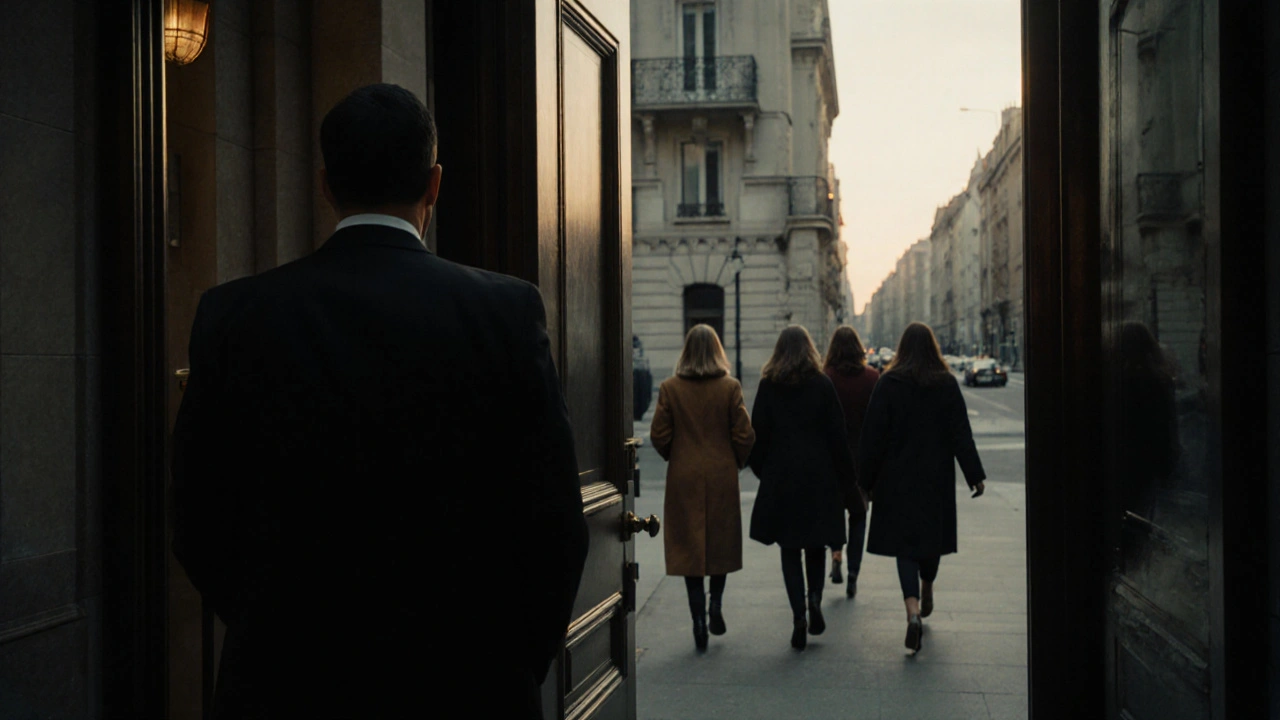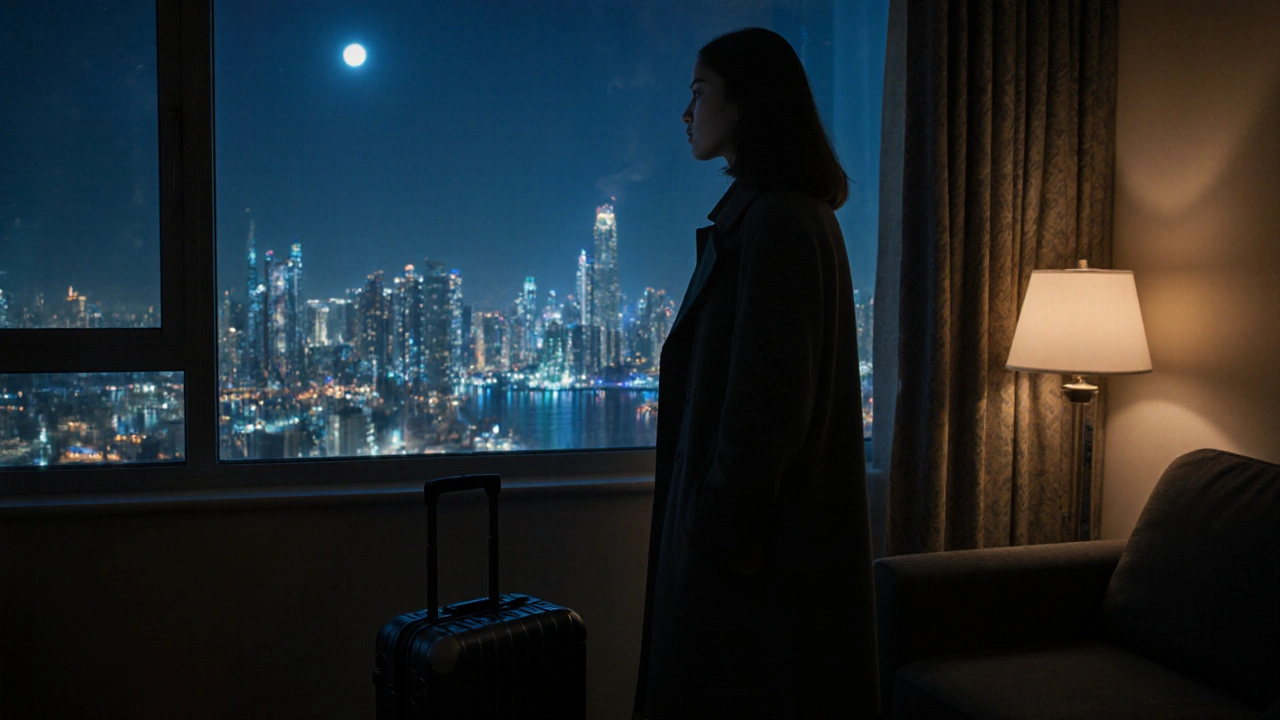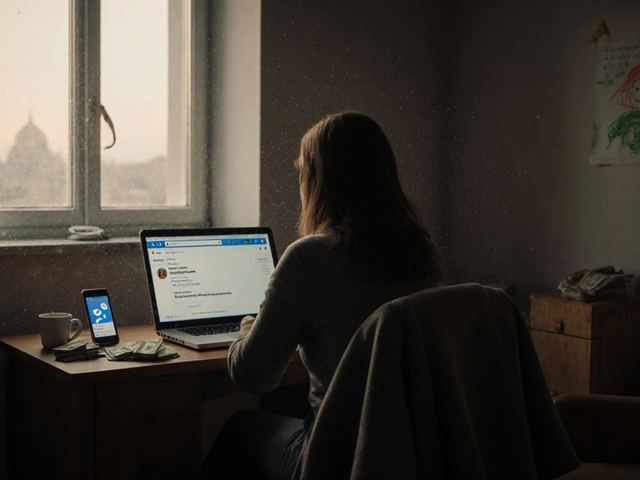When people talk about adult work in Dubai, the conversation often jumps straight to legality-or the lack of it. But beneath the headlines and rumors lies a much more complicated reality. Thousands of people, mostly women, work in the adult industry here-not because they want to, but because they have to. Others do it because they see it as the best option available. And a small number choose it as a career. The ethics aren’t black and white. They’re messy, personal, and shaped by power, survival, and cultural silence.
What Adult Work Actually Looks Like in Dubai
There’s no legal framework for prostitution in Dubai. The UAE Penal Code, Article 359, makes any form of commercial sex work illegal. That means no licenses, no regulated spaces, no safety nets. But the law doesn’t erase demand. It just pushes it underground.
Most adult work here happens through private appointments arranged via apps, social media, or classified sites like AdultWork. Workers often rent short-term apartments in areas like Jumeirah, Dubai Marina, or Al Barsha. Clients are usually expats-business travelers, construction managers, or tourists-who don’t want to be seen. The work is discreet, transactional, and risky.
Some workers are independent. Others are managed by individuals who take a cut, sometimes as high as 50%. There are reports of coercion, debt bondage, and passport confiscation-especially among migrant workers from the Philippines, Ukraine, and Eastern Europe. These aren’t rumors. Human Rights Watch and the International Labour Organization have documented them.
The Ethical Dilemma: Autonomy vs. Exploitation
Is it ethical to do adult work in Dubai if you’re not being forced?
Some argue yes. If a woman chooses this work, if she sets her own rates, if she has control over her schedule and clients, then it’s her right to earn a living how she sees fit. Many workers earn far more than they could in a factory job back home. One Ukrainian worker told a journalist in 2023 she made $4,000 a month-six times what she earned as a nurse in Kyiv.
But autonomy is fragile here. Without legal protection, workers can’t report abuse without risking arrest. They can’t access healthcare without fear of deportation. If a client refuses to pay, there’s no police help. If they get sick, they pay out of pocket. If they’re caught, they’re deported-and often banned for life.
That’s not freedom. That’s survival under threat.
The Role of Clients and Demand
Who’s really driving this industry? It’s not just a few bad actors. It’s thousands of men-many of them educated, married, middle-class-who believe they’re entitled to this service. They don’t see themselves as part of a problem. They see themselves as customers.
But every client contributes to a system that thrives on vulnerability. When you pay for sex in a place where the worker can’t say no without consequences, you’re not buying a service. You’re buying silence. You’re buying safety for yourself at the cost of someone else’s dignity.
And the irony? Many of these clients would never do this in their home countries. Why? Because they know it’s wrong there. But in Dubai, they think the rules don’t apply. That’s not cultural difference. That’s moral avoidance.

What About the Workers’ Stories?
There’s no official data on how many people work in adult services in Dubai. But based on forum activity, social media groups, and NGO estimates, the number likely ranges between 5,000 and 15,000. Most are foreign nationals. A few are locals, but they’re extremely rare-social stigma makes it nearly impossible.
One woman, who asked to remain anonymous, worked for 18 months in Dubai. She came from Moldova with a tourist visa, hoping to find a job as a nanny. When that fell through, a friend introduced her to a manager. She didn’t know it was illegal. She didn’t know she’d be locked in an apartment for three weeks until she paid back her ‘transportation fee.’
"I didn’t have a choice," she said. "I couldn’t go home. I owed money. I couldn’t call the police. I had no papers. I just wanted to live."
Her story isn’t unique. It’s common.
Why Legalization Isn’t the Simple Fix
People often say, "Just legalize it." But Dubai isn’t Amsterdam. The cultural, religious, and political landscape doesn’t allow for public sex work. Even if the government wanted to, it would face massive backlash from conservative groups and neighboring countries.
Legalization also doesn’t solve exploitation. In places like Nevada, where prostitution is legal in some counties, workers still face violence, trafficking, and lack of healthcare. Legal doesn’t mean safe. It just means visible.
What Dubai needs isn’t legalization. It’s harm reduction. That means:
- Decriminalizing the worker, not the client
- Providing access to healthcare and legal aid without fear of deportation
- Training police to identify trafficking, not just arrest workers
- Creating safe reporting channels for abuse
These aren’t radical ideas. They’re basic human rights.

What Can You Do?
If you’re reading this, you might be a client. Or you might know someone who is. Or you might just be curious. Here’s what matters:
- Don’t assume consent. In a system where people are trapped by debt, fear, or immigration status, consent is meaningless.
- Don’t normalize it. Just because it’s hidden doesn’t mean it’s harmless.
- Don’t silence the workers. Listen to their stories. Support organizations like the International Organization for Migration that help victims escape exploitation.
- Don’t think it’s "their choice" if they have no real options. True choice requires freedom. Most workers here don’t have it.
And if you’re a worker? You deserve safety, dignity, and a way out. There are NGOs that help people leave this life-even in Dubai. You are not alone. You are not worthless. You are not a criminal.
The Bigger Picture
Dubai’s adult industry isn’t just about sex. It’s about inequality. It’s about global labor migration. It’s about how wealthier nations exploit the desperation of poorer ones. It’s about the quiet complicity of tourists who want pleasure without consequences.
Until we stop treating adult work as a moral failing and start seeing it as a systemic failure, nothing will change. The ethics aren’t about whether sex work is right or wrong. They’re about whether we care enough to protect the people caught in it.
Maybe the real question isn’t "Is adult work ethical in Dubai?"
Maybe it’s: "What kind of society allows this to keep happening?"
Is adult work legal in Dubai?
No, adult work is illegal in Dubai under UAE Penal Code Article 359. Any form of commercial sex work, including prostitution, escort services for payment, and brothels, is prohibited. Violations can lead to fines, imprisonment, or deportation for foreign nationals.
Are most adult workers in Dubai forced or do they choose it?
Many workers enter the industry out of economic desperation, not choice. Migrant workers from countries like Ukraine, the Philippines, and Moldova often arrive with tourist visas and no job prospects. Some are lured by false promises, others are trapped by debt or passport confiscation. While a small number may see it as a high-income option, the lack of legal protections, fear of arrest, and social isolation mean true autonomy is rare.
Can workers report abuse in Dubai?
Reporting abuse is extremely risky. Workers who report violence, coercion, or non-payment risk being arrested themselves for engaging in illegal activity. Police rarely intervene unless a trafficking case is clear and verified by NGOs. Most workers avoid authorities entirely, even when they’re being harmed.
Why don’t more workers leave the industry?
Leaving is harder than it sounds. Many workers owe money to managers or recruiters for travel, accommodation, or "fees." Others have no savings, no support network, and no legal status to find another job. Deportation means returning home with shame, debt, and few opportunities. Some stay because they believe they have no other path to survival.
Do clients face legal consequences in Dubai?
Clients are rarely prosecuted. Enforcement targets workers, not buyers. This creates a dangerous imbalance: those with power (clients, managers) face little risk, while those with less power (workers) face arrest, detention, or deportation. This imbalance fuels exploitation and makes systemic change harder.
Are there organizations helping adult workers in Dubai?
Yes, but they operate quietly. Groups like the International Organization for Migration (IOM) and the Dubai Foundation for Women and Children offer support, shelter, and legal aid to victims of trafficking and exploitation. Access is limited, and many workers don’t know these services exist. Outreach is difficult due to fear and stigma.
What’s the difference between adult work in Dubai and places like Amsterdam?
In Amsterdam, sex work is legal, regulated, and workers have rights-health checks, tax IDs, labor protections, and access to police. In Dubai, it’s illegal, hidden, and dangerous. Workers have no legal standing, no safety nets, and no recourse. The difference isn’t culture-it’s policy. One system protects people. The other punishes them.
How does religion influence attitudes toward adult work in Dubai?
Islamic law prohibits extramarital sex and commercial sex work, which shapes public and legal attitudes. The government enforces these values strictly, and public discussion is taboo. This makes it hard to have honest conversations about harm reduction, worker rights, or alternatives. Religious norms reinforce silence, which protects the system rather than the people in it.
Understanding adult work in Dubai isn’t about judgment. It’s about seeing people-not roles, not crimes, not stereotypes. They’re mothers, sisters, daughters, and survivors. And they deserve more than secrecy. They deserve justice.





